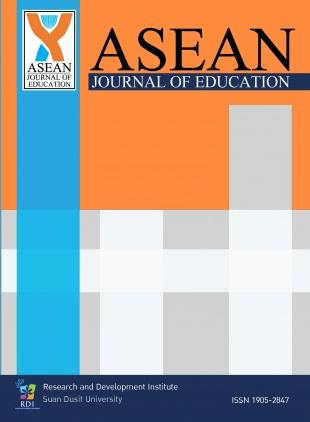Making It Happen: Educational Skills, Leadership, and Management Graduates in Actual School Work in the Philippines
Keywords:
Educational leadership and management, Leadership knowledge and skills, Relevance of graduate studiesAbstract
School leaders and teachers take graduate studies to become relevant and better educators. Aside from promotion in their rank, they believe that enrolling in graduate school will develop their skills in their respective fields of specialization. A teacher education university in the Philippines offers graduate programs in educational skill, leadership and management (EDSLM). True to its mission of nurturing innovative teachers and education leaders, many school leaders and teachers in the country are graduates of the university. Recently, enrollment in the masteral and doctoral educational leadership and management program is moderately high which may mean that graduate students believe in the course. Having more graduate students taking EDSLM courses is encouraging but finding if the program prepares effectively and develops holistically the skills of current or future school leaders brings a sense of fulfillment. The aim of this study is to find out the relevance and usefulness of the EDSLM program in terms knowledge and skills, communication skills, human relation skills, leadership skills, research skills, problem-solving skills and information technology skills in their current work. Moreover, the study identifies the needs and challenges of school leadership today and what must be given emphasis in the EDSLM courses. Based on the findings of the study, the graduates agree that the aforementioned skills that they acquired through the program are relevant to a great extent in their current work. They suggested that leadership in the new normal, people skills and technology skills should be given emphasis in the current EDSLM program.
References
Anderson, M. (2017). Transformational Leadership in Education: A Review of Existing Literature. International Social Science Review, 93(1),
Article 4. Ancho, I. (2020). Graduate education during COVID-19 pandemic: Inputs to policy formulation in the new normal. Recoletos Multidisciplinary Research Journal, 8(2), 87-105.
Arrieta, G. S., & Ancho, I. V. (2020). Ready or not: The experiences of novice academic heads in school leadership. International Journal of Learning, Teaching and Educational Research, 19(5), 78–98.
Baker, C. N., Peele, H., Daniels, M., Saybe, M., Whalen, K., Overstreet, S., & The New Orleans, T. I. S. L. C. (2021). The experience of COVID-19 and its impact on teachers’ mental Health, coping, and teaching. School Psychology Review, 50(4), 491-504.
Bluman, A. G. (2009). Elementary statistics: A step by step approach. New York: McGraw-Hill Higher Education.
Creswell, J. W. (2014). Research Design (4th edition). Los Angeles: Sage Publications.
Creswell, J. W., & Creswell, J. D. (2017). Research design: Qualitative, quantitative, and mixed methods approaches.
California: Sage publications. De Guzman, A. B., & Guillermo, S. M. L. T. L. (2007). The serendipity of principalship: Meaning-making of a Filipino secondary school principal. Asia Pacific Education Review, 8(2), 216-223.
Esplin, N. L., Stewart, C., & Thurston, T. N. (2018). Technology leadership perceptions of Utah elementary school principals. Journal of Research on Technology in Education, 50(4), 305-317.
Hallinger, P. (2015). Using the PIMRS in Future Research on Leadership and Learning. In Assessing Instructional Leadership with the Principal Instructional Management Rating Scale (pp. 131-160). Springer, Cham.
Harris, A., & Jones, M. (2020). COVID 19 – school leadership in disruptive times. School Leadership & Management, 40(4), 243–247.
Justice, M. (2018). The relationship between administrator interpersonal skills and school climate, student learning, and teacher retention. [Doctor of Education, Gardner-Webb University]. ProQuest.
Mendels, P. (2016). Improving university principal preparation programs: Five themes from the field. New York: Wallace Foundation.
Millington, C. (2008). The use of tracer studies for enhancing relevance and marketability in online and distance education. Barbados: Barbados Community College.
Raman, A., Thannimalai, R., & Ismail, S. N. (2019). Principals’ technology leadership and its effect on teachers’ technology integration in 21st century classrooms. International Journal of Instruction, 12(4), 423–442.
Southeast Asian Ministers of Education Organization Regional Center for Educational Innovation and Technology (SEAMEO INNOTECH). (2014). Success Competencies of Southeast Asian School Heads. Retrieved November 1, 2021, from http://www.seameo-innotech.org/news/success-competencies-of-southeast-asian-schoolheads-a-learning-guide/
Philippine Professional Standards for Supervisors-Department of Education. (2020). Department of Education. Republic of the Philippines.
Turner, D., & Lynch, D. (2020). School leader as researcher. London: Oxford Global Press.
Waruwu, H., Asbari, M., Purwanto, A., Nugroho, Y. A., Fikri, M. A. A., Fauji, A., ..., & Dewi, W. R. (2020). The Role of transformational leadership, organizational learning and structure on innovation capacity: Evidence from Indonesia private schools. EduPsyCouns: Journal of Education, Psychology and Counseling, 2(1), 378-397.
Downloads
Published
How to Cite
Issue
Section
License

This work is licensed under a Creative Commons Attribution-NonCommercial-NoDerivatives 4.0 International License.
1 All articles will undergo a formal peer-review. A panel of experts from within or without the university will examine the article; approval from a minimum of two experts is required for publication. Revisions posed by the experts must be completed by the research prior to publication.
2 Once published in the ASEAN Journal of Education, the article becomes intellectual property of Suan Dusit University. Duplication, in full or part, requires permission from Suan Dusit University.
3 Excluding errors incurred during printing, author(s) are responsible for the content of their articles.






